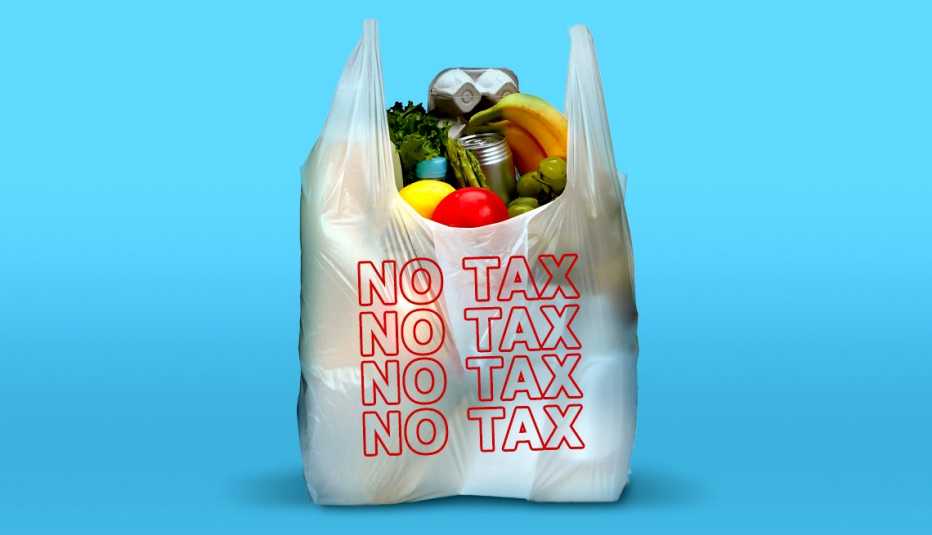Staying Fit


Most states exempt groceries from sales taxes but that’s not true across the nation. From Alabama to Virginia, 13 states include food you buy at the store in the retail tax. The rate varies from state to state, and in some the rate paid on food differs from the general sales tax rate. In any case, it’s putting pressure on households at a time when food prices are up and millions of Americans age 50 and older face food insecurity and the threat of hunger.
“Lower-income families feel it the most,” says Marco Guzman, a senior policy analyst at the Institute on Taxation and Economic Policy. If the biggest share of your income goes to food, the tax can have a big impact. Take Mississippi, which taxes food at 7 percent, the highest rate in the nation. A $200 grocery bill will cost $14 extra.


AARP Membership— $12 for your first year when you sign up for Automatic Renewal
Get instant access to members-only products and hundreds of discounts, a free second membership, and a subscription to AARP the Magazine.
All of the states that charge a grocery tax point to the need for the revenue. “Groceries are a big part of the sales tax. States get a lot of revenue from it,” says Guzman. “States considering eliminating the sales tax on groceries have to be mindful of the places to make up that revenue.” If you live in any of these 13 states a food tax is part of life. Here’s how much:
1. Alabama
Since the fall, the state’s food tax rate was set at 3 percent, down from 4 percent. That may get cut to 2 percent on Sept. 1, 2024, if there is enough growth in the state’s Education Trust Fund, according to the Alabama Department of Revenue. Local jurisdictions and municipalities can still charge a tax on top of the 3 percent.
2. Arkansas
The state imposes a 0.125 percent tax on food but you may pay more depending on where you shop as city or county sales taxes apply. Proceeds from the food tax go to the state’s Conservation Fund.
3. Hawaii
The Aloha state doesn’t have a sales tax, but it does charge businesses an excise tax of between 4 and 4.5 percent, which retailers pass on to consumers. To offset some of the costs associated with food sold at stores, Hawaii has a grocery tax credit available to residents who meet certain criteria, including household income.
4. Idaho
Food is taxed at the state’s rate of 6 percent, although Idaho does offer a break to lower-income residents. Idahoans can get a $120 refund for some of the sales tax they paid on groceries. Residents 65 and older get $140. The state will also pay residents $120 for each qualifying dependent. Part-time residents can get a prorated credit.
5. Illinois
The state charges a 1 percent tax on groceries. The tax had been suspended from July 1, 2022, through June 30, 2023, but returned in July 2023.
6. Kansas
The grocery tax stands at 2 percent for 2024, down from 4 percent in 2023. It is set to be phased out in 2025 but local sales and use taxes still apply to food.



































































More From AARP
9 States With No Income Tax
Don’t overlook other state taxesThese 13 States Don’t Tax Retirement Distributions
Every penny from your nest egg counts when you’re retired
What State Tax Rates Don't Tell You
How to find out what you'll pay
Recommended for You